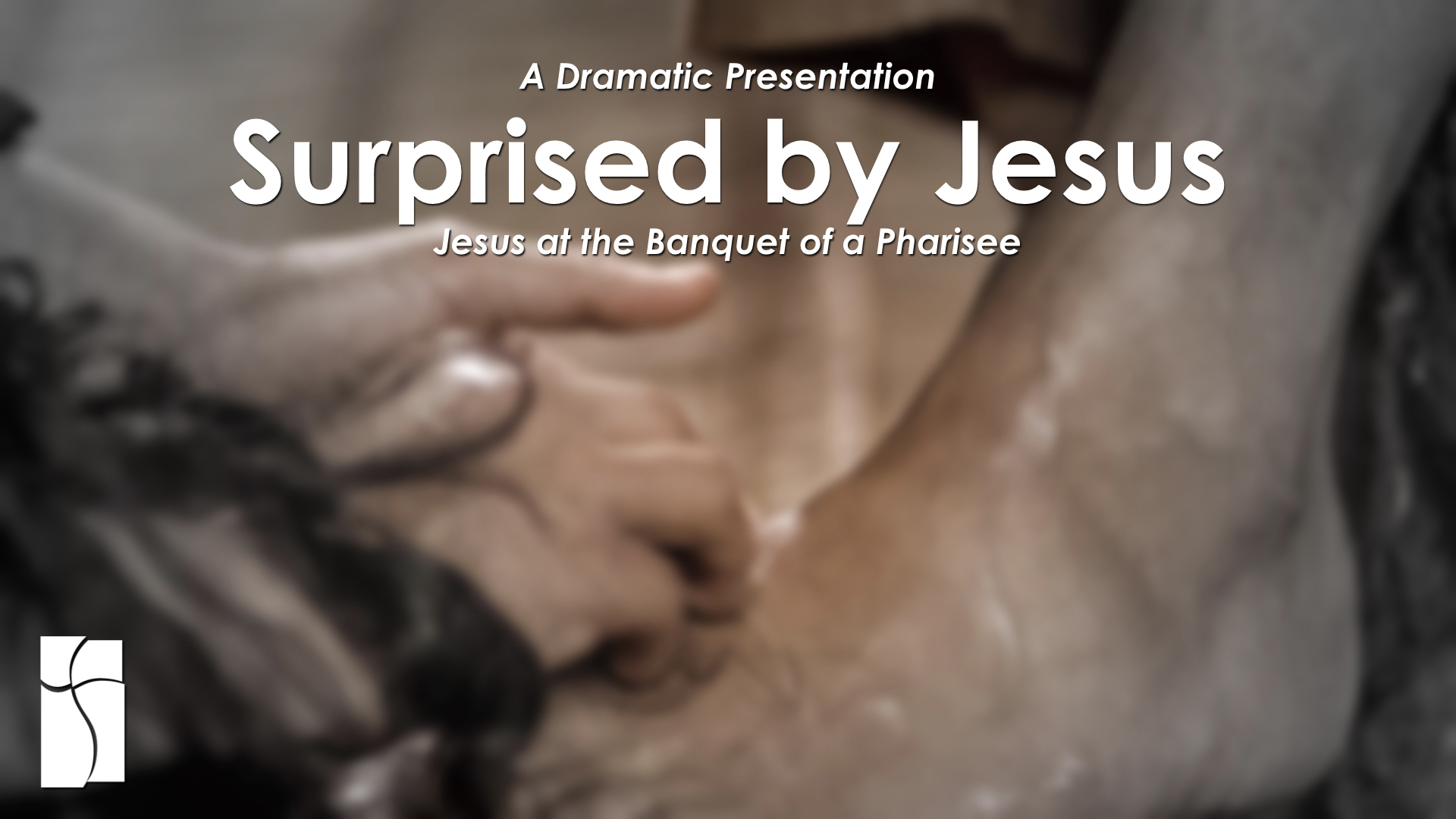Good News for a Future
Emmanuel – God with Us Jesus’ story, like other human stories, begins with birth and goes to death. The same but different. Something more is happening so that that event can become part of every human life – our life. Our theme: “God with Us.” Unexpected entry; Refugee; at Long last. God chooses a very distinctive way to create a bridge from God to Us. It’s truly wise and powerful beyond imagining, but overturns every structure of smart power we build. We humans live in a moment. The limitation of life unfolds in Genesis. The Big Bang, 13.75 billion yrs ago. All written human history, 6,000 yrs. But in the scale of God’s infinity, the Big Bang is hardly longer ago than the pyramids or cave paintings. Other things determine value, meaning. 2 Pet. 3:8. God’s bridge draws my human life into the long past and future of the human drama and into the heights and depths of God’s life. Being Part of a Long Past and Long Future We have no idea what it’s like to be God. Timeless?
Joy at Long Last
People Waiting for Joy through Long ... Experience Luke takes us into the life of faithful Jews near the end of Herod’s violent reign. Zechariah/ Elizabeth; Mary/Joseph; Simeon and Anna. Two young, four elderly. The old ones lived through the old days and know they weren’t better. They carry the long expectation. Isaiah, before the exile, foresaw Israel’s royal hope cut off. But a branch would grow from the stump. He would bear God’s Spirit; God’s heart for justice; God’s renewal. What joy! Things started happening: Gabriel, Zechariah, Mary, Elizabeth, John’s birth. Mary and Joseph bring an astonishing child (angels-shepherds) to the Temple for faithful obedience, 6 bc.
Peace Refugee from Human Violence
Refugee, Exile, Alienation – Home Advent and Christmas present positive images of Peace and Love. It’s striking that the Gospels don’t edit the story of Jesus’ birth for sweetness and uplift. The event of Jesus enters the long story of human separation, alienation from God and each other. God strives to bring us back home, to reality, to real life. We’re refugees who enjoy our exile and have set up life in it with our own power structures, pretending all is fine. Exile is all there is. We don’t need a Creator. Alienation hits every level: our hearts, relationships, societal/ political structures, a break of earth from heaven. Can anything really New break in?
God's Unexpected Entry
Many Anticipations Become One Event After disastrous exiles that ended kingdom in Israel and Judah– prophets and people anticipated the return of God in glory. When, how would he come? Restored Temple. New King-Messiah. Pure priest. Son of Man–people receive kingdom. Suffering servant–for people. Could Gentiles be included? Or a purified people? Or do we just keep up tradition? Jesus, in his teaching and action, is the first to unify and embody all these anticipations. People struggled to grasp uniting glorious Messiah with suffering servant, transformed temple, and included outsiders. In Jesus’ death and resurrection they realized that Jesus was the very Advent of the One God, who used the human forms and anticipated images to show himself in the person of Jesus – the one and only Son, glory, and suffering.
The Good News and the Gospels
Why do We have Gospels?
For some the “Gospels” are a puzzle or problem. The first “Gospel” sermon was Pentecost. The Gospel is “You’re a sinner but God loves you. Receive Jesus as Lord & Savior. Pray.” Everything is focused on a moment of decision: The “born-again” experience. The Gospels seem like preamble or back-story. Acts has conversion moments, but also long teaching.
Pagans and Jews were brought into new life, not by a minimal formula, but by encountering Jesus in stories told by teachers – God shining in our hearts in the face of Jesus.
Our Gospels reflect a process, the experience of the first generations of believers. During Jesus’ ministry, and especially after his crucifixion they told about Jesus. To remember and understand for themselves and explain to others – teaching, celebration. They discovered people transformed by the vision of God and his Kingdom in these stories.
The NT embodies this process: Jesus whole ministry happens, death (end), resurrection (reverse)! Telling the story (Acts), transformation and community (Letters). Telling the story again (Gospels). The Gospels are the voice of the whole community who had lives transformed by these accounts and told them a thousand times. What’s not here: authors, authorities & documentation. No biographical curiosity: appearance, childhood.
Four Gospels have two basic patterns Mark (with Matthew & Luke) and John. All recount situations in Jesus’ ministry but focus on Jesus’ crucifixion and resurrection.
Books of Encounter with Jesus, God’s Kingdom, and God
The Gospels all have elements of history, biography, colorful narration, & useful wisdom, but exact narration isn’t what they’re about. (Mt & Lk change events and wording in Mark.)
The Gospels were written for all of us outside the experience of Jesus’ first disciples. They help us at a distance to experience something of the fascination and delight Jesus brought to followers, but also the disorientation and challenge. The devastation of his crucifixion and explosion of his resurrection. His teaching is seen in the light of it all. They guide us to a complex, transforming encounter with Jesus for ourselves: Learners.
God shines through Jesus’ face in four Gospels – diverse, unranked. We each have to read, learn, see Jesus for ourselves together – both individual and community. Jesus is the event of God, experienced anew, interpreted, powerful, transforming in every culture. God uses these narratives in an unending disciple-making process. We participate with others.
Surprised by Jesus: Jesus at the Banquet of a Pharisee
The audio version is condensed and includes the introduction, readings, and monologues of Susanna and Simon, by Corrine Francois-Pijuan and Matt Henegar.
"I wanna see Jesus!"
Mark 5:21-43, Luke 19:1-4
Deacon, Reggie Jackson preaches on Jesus in the Gospel of Mark and Luke.
*Please Note* we experienced some technical difficulties and the recorder stopped recording roughly ten minutes from the conclusion of his sermon. We apologize for the abbreviated sermon.
Dawning Light from Resurrection to Pentecost
Acts 2:1-4; 32-33; Luke 24:1-10
Celebrating Pentecost
One day of the year that Paul especially honored was Pentecost, the 50th day after Passover, the Feast of Weeks. Something happened that changed the world.
The result and power of all that had happened in Jesus began to be poured out for humans in everyday life: God fulfilled his promises from creation and throughout Israel’s long history and opened that history wide for all the rest of the world to participate.
In the incarnation in Jesus, God united God and human. God’s self-giving love embodied in creation and covenant he gave in new form by taking to himself human suffering, brokenness, sin and death. He defeated death by the creation of new life in Jesus’ resurrection from the dead. On Pentecost all of this was poured out for all people, beginning with the Jews. God and human were united in a new way by the gift of God’s own self, God’s life, God’s power in the Holy Spirit given to those who trusted in all that Jesus had done. God filled broken human life with love, joy, and hope by beginning the process that will finally defeat death and unite all reality in resurrection, new creation.
Women Following Jesus
Luke 8:1-3
What is God Doing? Acts looks back to Pentecost - a remarkable beginning. Not careful planning and strategy. Not insight by Apostles. Yes, they were prepared by Jesus. But they were carried along by God’s intervention. God waited till Pentecost for the meaning of the feasts. Passover: deliverance. Pentecost: Covenant, Community, Giving of Torah - God breaking in.
Proclaiming Peace to Far and Near
Ephesians 2:14-22
Advent: He came with Good News of Peace
Isaiah looked with hope for God’s intervention – a child, Prince of Peace (Isa 9:6). The angel at Jesus’ birth echoed his words: to you is born a baby in a trough, Savior, Messiah, Lord.
What is a Prince of Peace? One who imposes peace – Augustus? Paul’s Advent meditation points to Jesus coming to proclaim peace (Isa 52:7) to those far and near (Isa 57:19).
But Jesus is not just the messenger or a conquering power commanding peace. Paul says Jesus himself is our peace. He’s writing to people in societies of intense conflict, with deep societal divisions and fears: Jew-Gentile, Roman-Greek-other ethnic groups, slave- free, male-female. Acts 19 show explosive fears, superstitions, and conflicts in Ephesus.
Paul had seen the how Jesus (as message and active presence) had brought together Jews, Romans, Greeks, the enslaved, the fearful into a new unity. It was who Jesus is – his life, message, cross, resurrection, Spirit – that embodied a new Adam, human being, the Suffering Servant of Isa 53, and that showed God’s purpose to unite everything in him.
A Guide in the Way of Peace
Isaiah 52:7-10, Luke 1:68,70, 76-79
What Would a Prince of Peace Look Like?
In the context of Advent, the vision of a Prince of Peace may seem obvious. But in Jesus’ time, Augustus Caesar was the great prince of Peace, conquering all: peace under Rome.
Jews chafed under his appointed rulers over the land. God, not Herod or Pilate should rule. Where was Isaiah’s promise: “Your God is King”? When would “the coming one” come?
Jesus’ whole story is that coming (Advent): Birth, ministry, passion, resurrection, all of it. People thought they knew what they were looking for – their own holy, good Augustus. After all, who is a more absolute king than God? They were ready to join the revolution. Jesus comes calling followers to “the Kingdom of God.” What else could it mean?
Finding Jesus in the Temple
Luke 2:41-52
Our passage today is a small glimpse into the process of reconciliation that God initiated through Jesus. Luke, has one of the most vivid descriptions and comprehensive narratives surrounding the birth, life, death, and resurrection of Jesus of all the Gospels. The text in Luke 2:41-52 is the final of four blocks of text that captures the key events in the infancy of Jesus. It is important to recognize, that Luke is a very careful and deliberate writer. He intends to “draw up an account” of all the things that he has witnessed and investigated as a disciple and follower of Jesus. Luke begins his Gospel with the end of Acts in mind. He is steady and clear in making an ordered testimony of all the events that surrounded the coming of the Lord’s Messiah, Jesus. Luke is trying to make the point, that our expectations will not bind the Messiah, and that Jesus will not only be fulfilling the promise of God’s deliverance, but he will also be undoing our limited expectations of God.
Loving Mercy on Mother's Day
The Good Samaritan
Amy preaches a powerful sermon on the “Good Samaritan” for our Mother’s Day Sunday morning service.
How Slow Embers Catch Fire
Luke 24:13-48
Broken Hopes and Living Hope
We focus on the meaning of Jesus' resurrection from Easter to Pentecost: a living hope (1Pet 1:3). Jesus entered Jerusalem to such hope, all so cruelly crushed in a cross and tomb! How could things go so wrong? How could a movement emerge? Was it wrong? What did Jesus' resurrection mean?
Luke emphasizes the perplexing events. None of Jesus' disciples could grasp his crucifixion or thought anything good could follow it. They were broken-hearted, disappointed. Male disciples hid. The women went to the tomb with spices to cover the smell of death. Then new things began to happen. An empty tomb. Women were told by 'angels' that Jesus was alive. The apostles couldn't believe it. They were amazed. They talked, argued. If only! Why not prevent death? Why not redeem Israel?
Gospel of Gratitude
Luke 17:11-19
Lewis Smedes, who was my ethics professor at Fuller Seminary, described it this way: “Ingratitude decays the spirit, spoils the soul, decomposes life itself.”
In this sermon Amy looks at the story of the lepers that Jesus heale from leprosy. Nine went on their way and only one returned to thank Jesus. What made this man return to Jesus? What did he see and experience when Jesus responded to his cries for mercy with healing grace? And how can we live in gratitude everyday, seeing our lives as gifts from God?
The Poor, The People, and a Community of Hope
Luke 16:19-31
Carl Garrison, the minister for the Community of Hope delivers a powerful message on the Sunday before Martin Luther King Jr. day.







